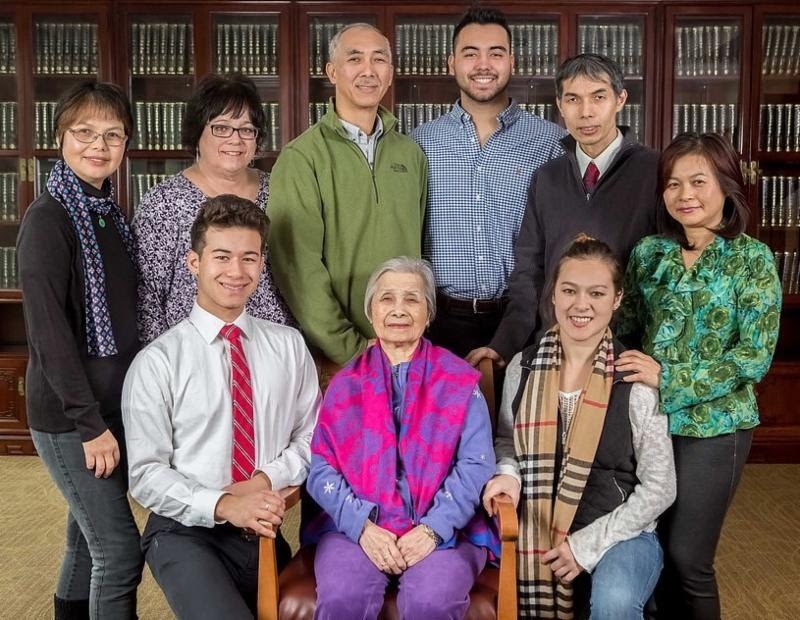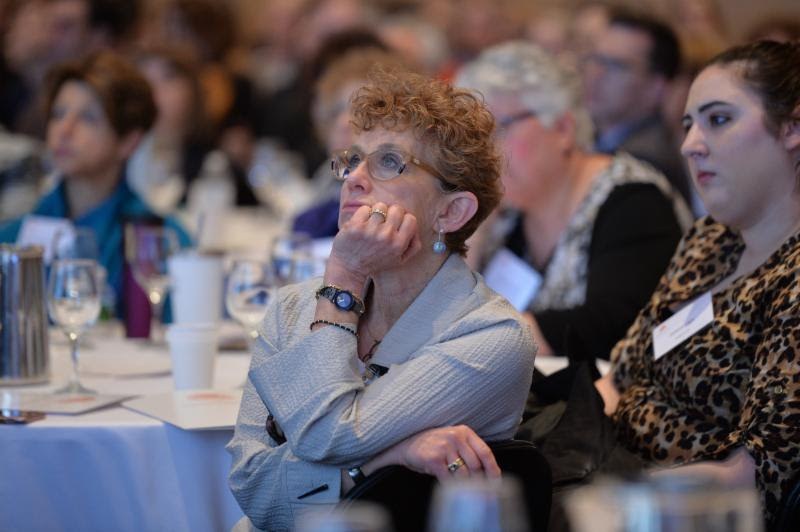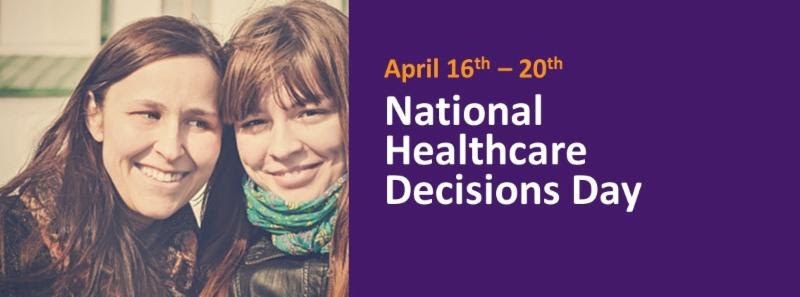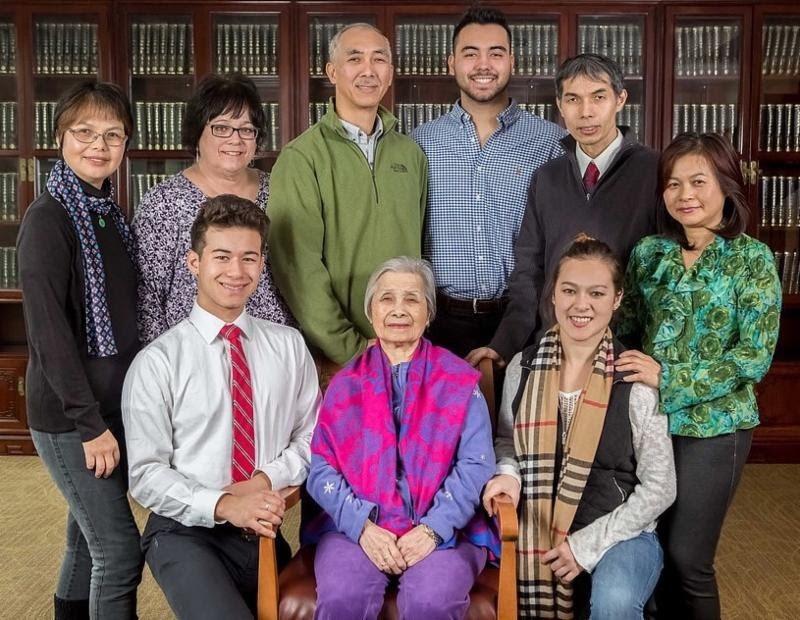April 2018 Newsletter

Publication Date: April 2, 2018
Register Now for May 15 Coalition Summit!

Register now to attend our summit at the JFK Library in Boston on Tuesday, May 15. The agenda includes:
- Latest research findings
- Updates on Coalition initiatives
- New videos
- Panel: "What it takes to make progress on major public health issues"
- Breakout / interactive session
Hope to see you there!
Join the Movement!

The Coalition is proud to join the nationwide movement to inspire, educate and empower both the public and healthcare providers alike on the importance of advance care planning by taking part in National Healthcare Decisions Day (NHDD). An initiative of The Conversation Project in collaboration with the Institute for Healthcare Improvement, NHDD will be taking place from April 16 – April 22, 2018. NHDD sets out to demystify healthcare decision making, which should begin with meaningful conversations focused on people’s deepest values and wishes for care. Make a pledge to participate in this year’s NHDD and connect with your local participating organizations and individuals on the official NHDD website.
After 40 Years, Good Shepherd Community Care Still Leading the Way in Providing Serious Illness Care


For forty years, Good Shepherd Community Care has been ahead of the curve in caring for serious illness patients and their families in Massachusetts. The Newton-based organization was established in 1978 as the first hospice organization in the Commonwealth of Massachusetts under the name Hospice of the Good Shepherd. “When we first started, it was a volunteer program that was unreimbursed,” says Jennifer Sax, Director of Communications for Good Shepherd Community Care. “Now it is a widely recognized, reimbursed and regulated heath care industry. However, we still see how far we have to go for people to be culturally comfortable talking about end-of-life care.” The organization has a holistic, comprehensive, team-based approach to care with staff that includes a medical director, nurses, social workers, home health aides, spiritual care providers, and music and art therapists. Also offered are a variety of additional complementary therapies including Reiki, massage, and pet therapy. Volunteers still play a vital role. Last year the organization served more than 1,000 patients.
In 2013, the organization re-branded itself as Good Shepherd Community Care, to reflect its broader response to the community’s expanding needs surrounding serious illness care. While hospice remains the organization’s primary service, the diversity and depth of its programs continues to grow and now includes a multicultural hospice program, palliative care programs and Good Shepherd Institute, the organization’s educational branch to build awareness about end-of-life issues.
Recognizing that perceptions about hospice and variations in the rituals and traditions associated with end-of-life care differ among cultures, Good Shepherd Community Care started the Krug Zaboty Russian Hospice Program in 2010. The name Krug Zaboty means “Circle of Care.” “We wanted to be able to support the full range of the needs of as many patients in the community as possible so we can meet them where they are, and help them reach their care goals,” says Sax. Based on the success of the Russian Hospice Program, more than a year ago Good Shepherd launched its Asian Hospice Program 牧 愛 社 區 服 務 (pronounced ‘mook oy sair kui fook mo”). The program expands their services to include care for several Chinese-speaking dialects (Cantonese, Mandarin and Toisanese) and also Vietnamese.
Sax says it takes great effort and resources to have innovative and dynamic multicultural programs like theirs, but it is well worth it. Elements of their multicultural programs include having staff that speaks the language of the community, fully staffed 24-hour phone numbers for patients and families to call for advice in the language of their choice, and full sets of translated documents in respective languages. Also available are resources to address major cultural differences surrounding death. A new Spanish language-based program for the Latino community is in its early stages. The name Caminos de Paz means “Ways of Peace.”
The expansion of their programming to include palliative care services allows Good Shepherd to reach serious illness patients who are not eligible for hospice care. “There is misinformation out there about what palliative care is and what the difference is,” says Sax. Good Shepherd Community Care is the official provider of inpatient palliative care for St. Elizabeth’s Medical Center patients and their families, and also has a small group practice of MDs and NPs to provide palliative consults in the community. It is additionally one of the largest providers of pediatric palliative care to children in Massachusetts.
As the first hospice in Massachusetts, this year Good Shepherd is proudly celebrating 40 years of compassionately caring for their community. Many public events are being planned in celebration. The signature event will be the Annual Good Shepherd Institute Dinner at the Newton Marriott on November 1. The keynote speaker will be Dr. Atul Gawande, surgeon, author of the best-selling book Being Mortal and Coalition co-chair. Tickets and information will be made available to the public in the coming months.
To learn more about Good Shepherd Community Care, please visit their web site or call 617.969.6130.
If you have a story to share about your organization, please let us know! Contact Richard Averbuch.
HHS Panel Advances Payment Models to Support People with Serious and Advanced Illness
On March 26, a panel of experts convened by the U.S. Department of Health and Human Services (HHS) advanced two alternative payment models, one designed by the Coalition to Transform Advanced Care (C-TAC) and the other by the American Academy of Hospice and Palliative Medicine (AAHPM), to support those living with serious and advanced illness. Recommended by the Physician-Focused Payment Model Technical Advisory Committee (PTAC), the go-ahead to send C-TAC’s Advanced Care Model (ACM) and AAHPM’s Patient and Caregiver Support for Serious Illness proposal through to HHS Secretary Alex Azar for approval comes as a first step to transform the healthcare system for those who need quality healthcare most.
The ACM was built on evidence pulled from past program successes to break down silos within the current healthcare system in order to bridge the gap between traditional medical and social services, ultimately providing those in need of care with a comprehensive care management program. If fully approved by the HHS, the ACM would affect approximately 25% of Medicare expenditures and support millions of beneficiaries. For more information, please visit C-TAC’s blog, B-TAC.
